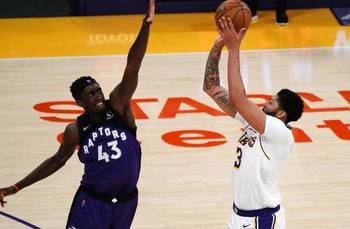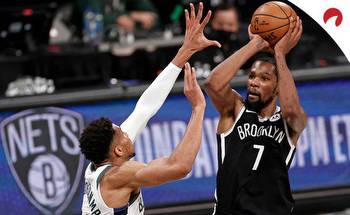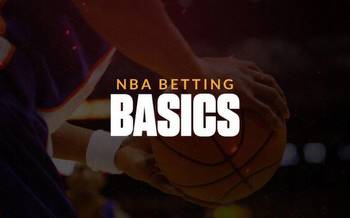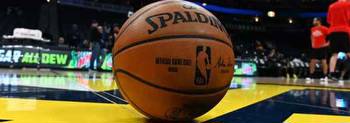Betting intellect: Where sports strategy and smart wagers intersect

While chance plays a role, those who consistently come out on top have more than just a rabbit's foot on their side. A combination of strategy and smart wagers is needed to increase your winning chances.
In this article, we will discuss the art of strategic sports betting. We'll also explain how a calculated betting approach can turn you into a profitable bettor. Let's dive right in.
1. Understand the basics of sports betting
Sports betting is all about betting on the outcome of a sporting event. To start, you must familiarize yourself with odds, spreads, and moneylines. They are the building blocks of sports betting.
Odds
Odds represent the likelihood of a particular outcome happening. They can be expressed in different formats, such as fractional, decimal, or American odds.
Understanding how to read odds is crucial for calculating potential profits and making informed bets.
Importantly, always bet at sportsbooks with competitive odds. Smart Betting Guide, a site that reviews top-level bookmakers, can help you identify sportsbooks with the best odds. Check it out.
Spreads
In sports like football and basketball, the point spread is used to level the playing field between two teams of varying abilities.
Betting against the spread involves wagering on whether a team will win by a certain margin or lose by less than a specified margin.
Moneylines
Moneyline betting is straightforward; it is betting on a team or athlete to win outright, regardless of the margin of victory. The odds determine the potential payout.
2. Research
Successful sports bettors are like detectives. They investigate various factors before placing their bets. Here's what your research should involve:
Team and player analysis
Take some time to understand a team's recent performance, and key player injuries. Learn their head-to-head matchups and how each team performs under different situations.
In individual sports like tennis or golf, learn a player's form, strengths, and weaknesses.
Statistics and trends
Studying statistical data can provide valuable insights. This includes a team's scoring averages, home vs. away records, and defensive performance.
Betting trends like a team's performance against the spread or in specific weather conditions, can also guide your decisions.
News and updates
Keep up with news and developments in the sports world. This includes injury reports, coaching changes, and any other factors that may impact the outcome of a game.
3. Bankroll management
Betting intellect also involves smart bankroll management. This means setting aside a specific amount of money for betting and not exceeding that limit.
Don't go beyond your budget regardless of whether you're winning or losing. Here are some essential bankroll management principles:
Unit betting
Betting in units rather than a fixed dollar amount helps manage risk. A unit should represent a small percentage of your overall bankroll, typically around 1-2%.
Avoid chasing losses
It's easy to become emotionally invested in chasing your losses. However this often leads to reckless bets. Successful sports bettors know when to walk away and reassess their strategy.
4. Emotional discipline
Great bettors are logical rather than emotional. Novices often overlook the importance of emotional discipline, but is critical for success. You can easily get caught up in the excitement of a big game or a winning streak.
However, successful sports bettors remain cool-headed and make rational decisions. Here's how to do it:
Stick to a plan
Successful bettors have a clear strategy and stick to it. They don't let emotions dictate their bets. Whether they're winning or losing, they stay true to the course.
Chasing wins is a common pitfall in sports betting. When on a winning streak, some bettors increase their stakes hoping to keep winning.
This can lead to unexpected losses. Smart bettors resist this urge and maintain their betting strategy.
5. Time and effort
Successful sports bettors invest time and effort into their craft. This includes:
Continuous learning
They are constantly learning and adapting. They study new statistics, follow the latest developments in their chosen sports, and refine their strategies based on new information.
Record keeping
Keeping detailed records of your bets is essential. This helps you analyze your performance, identify strengths and weaknesses, and make data-driven adjustments.
Networking
Successful sports bettors often network with other experienced bettors. They share insights, exchange information, and gain access to collective knowledge. Networking can be invaluable in making informed decisions.
6. Responsible gambling
Betting intellect also involves responsible gambling practices. Here are a few tips for responsible gambling:
Setting limits
Smart bettors set daily, weekly, or monthly betting limits. They never wager more than they can afford to lose.
Recognizing problem behaviour
Stay vigilant and look out for signs of problem gambling. They include chasing losses, betting with borrowed money, or neglecting other responsibilities. If you notice these signs, seek help immediately.
7. Legal and ethical consideration
Take some time to learn and understand the legal and ethical aspects of sports betting. Research the laws and regulations governing sports betting in your jurisdiction. Do not bet through illegal or unreliable sportsbooks.
Ethical sports bettors emphasize fair play. They don't engage in match-fixing or use insider information to gain an unfair advantage.
Building a winning strategy
If you want to be a successful bettor, you cannot go in blindly. Take time to build a strategy depending on the sport you choose. Here are some tips to improve your strategy.
Value betting
This strategy involves identifying bets where the odds offered by sportsbooks underestimate the probability of an outcome occurring. It requires a keen eye for spotting discrepancies between the odds and your own assessment of an event.
Line shopping
Different sportsbooks offer different odds for the same event. Research and find the best odds, to maximize potential profits. Do not rely on one sportsbook. Shop around and ensure you get value for your money.
Hedging
Hedging involves placing additional bets to minimize potential losses or secure a profit. It is particularly helpful when in doubt of a previous bet. This risk management strategy can keep you from making big losses.
Specialization
Consider specializing in a specific sport or even a niche within a sport. By becoming experts in a particular area, you can exploit opportunities that others might overlook.




































